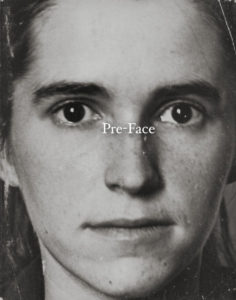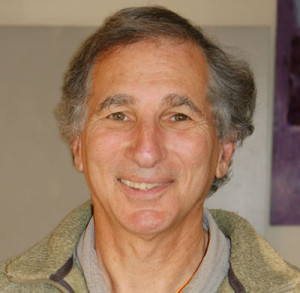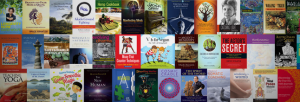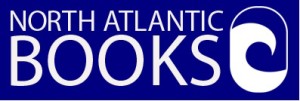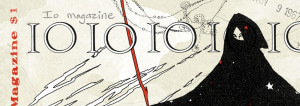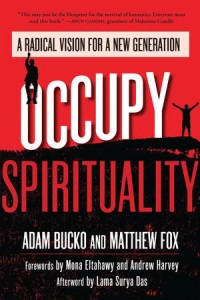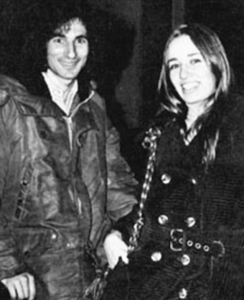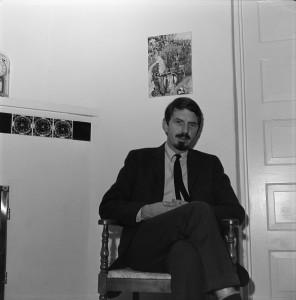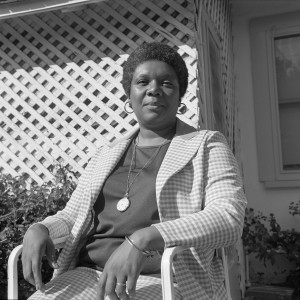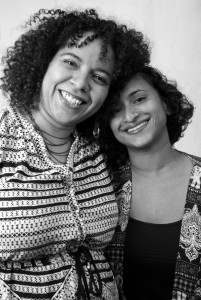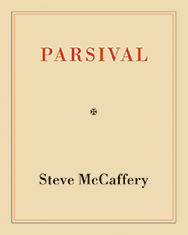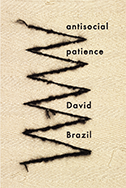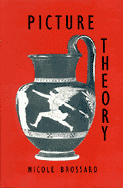Maureen Owen and Barbara Henning reading in Tucson, Arizona
March 3, 2019 by David
Filed under AuthorsVoices
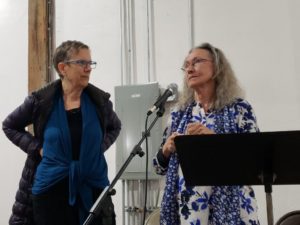 What a great trip! Starting January 18, 2019, with a reading at McNally Jackson Bookstore in Brooklyn, New York, poets Maureen Owen and Barbara Henning, started a cross country journey together (you can view their trip itinerary here).
What a great trip! Starting January 18, 2019, with a reading at McNally Jackson Bookstore in Brooklyn, New York, poets Maureen Owen and Barbara Henning, started a cross country journey together (you can view their trip itinerary here).
Appropriately, their story and journey began in Brooklyn, where Barbara lives, and this amazing cross-country jaunt ends in Denver two months later, where Maureen lives.
The two writers have been blogging about their adventure here – their writing is terrific and fun, it is always fresh and lively, truly poets’ reportage, and reading their travel log will make you feel like you are along for the ride with them. They are having alot of fun and meeting and talking with some wonderful people along the way. They are getting to see some beautiful parts of our country too. Their two months on the road will feature 16 public events, and innumerable anecdotes and stories. It’s really fun to follow along with them as they travel, and when they are done, this will make a really interesting book.
I had the good fortune to be in Tucson, Arizona, when the two writers arrived there on February 14. Maureen is an old friend and colleague, so it was wonderful to get together with her, and to meet Barbara for the first time. When I went to hear them read for the POG Poetry reading series at the Steinfeld Warehouse Community Art Center, 101 West 6th Tucson on Saturday, February 16, and I recorded the event for this Authors Voices series here on Writerscast.
Local writer Steve Salmoni introduced the event. Poet and publisher (Chax Press) Charles Alexander introduced Maureen, and artist Cynthia Miller introduced Barbara, who lived in Tucson for a few years and has many friends there still.
It was a great event, and a wonderful opportunity to hear two terrific writers, both of whom engage with their audience and their writing. I’ve known Maureen for a long time, and believe she is one of the best poets of our time. Getting to hear Barbara Henning was a treat for me, as she is also a terrific writer of both poetry and fiction. I’m very pleased to have the opportunity to present this reading here.
Poet Maureen Owen was born in Minnesota, lived and worked in New York City and Connecticut, and has been living in Denver for a number of years, where she has long taught at nearby Naropa University. She was the founder of Telephone magazine and Telephone Books, worked at the Poetry Project in NYC, and is the author of a number of wonderful collections of poems.
Barbara Henning is a poet and fiction writer, born in Detroit, who has lived mostly in New York and Tucson since the early eighties. Aside from being the author of a number of books of poetry and fiction, she was also the editor of a book of interviews, Looking Up Harryette Mullen, and The Selected Prose of Bobbie Louise Hawkins. She is professor emeritus at Long Island University, where she taught for many years.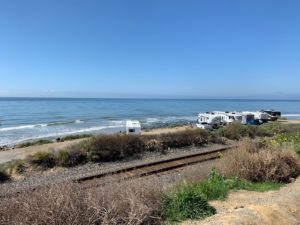
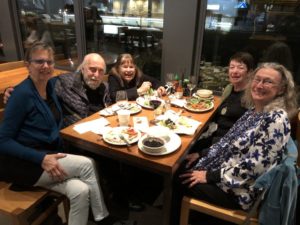
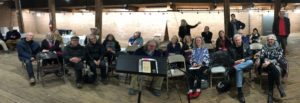
Podcast: Play in new window | Download
Gordon Ball: East Hill Farm: Seasons with Allen Ginsberg
August 28, 2018 by David
Filed under Non-Fiction, WritersCast
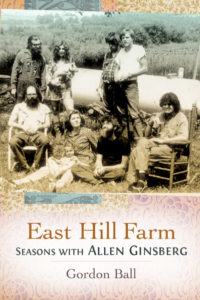 East Hill Farm: Seasons with Allen Ginsberg – Gordon Ball – Counterpoint Press – 416 pages – paperback – 9781619020177 – $18.95 – December 11, 2012 – ebook edition available at lower prices
East Hill Farm: Seasons with Allen Ginsberg – Gordon Ball – Counterpoint Press – 416 pages – paperback – 9781619020177 – $18.95 – December 11, 2012 – ebook edition available at lower prices
It’s been a great pleasure for me to be able to interview writer friends and editors about their work for the Writerscast and Publishing Talks podcasts. I first met writer, film-maker and now professor Gordon Ball soon after moving to Chapel Hill, North Carolina at the very end of 1973. I knew almost no one in North Carolina, but in those still counter-cultural days of boomer history, it was relatively easy to make friends, especially within the fairly small community of like-minded poets and writers that laid-back college town oasis attracted.
Gordon Ball was in Chapel Hill for graduate school, after spending several years as the amanuensis and farm manager for Allen Ginsberg at his funky farm refuge in Cherry Valley, New York. How Gordon got to be there, and what happened during his time among the heroes of the Beat Generation and the hippie revolutionists who followed them is the subject of his excellent and enjoyable memoir, East Hill Farm.
Allen Ginsberg was unique, as a poet who became a cultural icon, a political and spiritual leader whose writing has influenced millions of readers. East Hill Farm was his attempt to build a refuge from city life – “a haven for comrades in distress,” especially friends whose lives were being ruined by hard drugs like iconic beat poets Herbert Huncke and Ray Bremser, who both spent time at the farm in the late sixties. Gordon recounts his first hand stories of the refugees who arrived there as well as the many local upstate characters who helped make the dilapidated farm into a livable home and a functioning farm of sorts. This story is emblematic of so many “back to the land” excursions from the sixties, when hippies from the cities and suburbs arrived uninvited in small town farm communities in places like Vermont, Maine, northern California, Oregon and of course, upstate New York.
But he also tells us about his own journey, his family, the loves and losses that he experienced in this heady era when millions of young people all around the world revolted against the constraints of post-War modern capitalism, all trying to find a different way to live. His experiences and those of his compatriots help us understand how that special moment in our history was lived, and perhaps also, why it could not last or lead to the kind of social change its participants believed in and hoped for.
But what a great experience it was. And so much of what happened there will not be lost or forgotten because of this book.
“I couldn’t stop reading East Hill Farm and learning so much of what really went down on that farm in that so crucial period in the lives of the Beats. I visited the farm just twice but wish I had had Ball’s innocent yet so perceptive eye.” —Lawrence Ferlinghetti, author of A Coney Island of Mind.
“In the late 1960s, poet Allen Ginsberg bought an isolated, broken-down farm in upstate New York as a retreat for himself and his worn-out, burned-out friends. Ginsberg hoped to create an Elysium where they could escape from the urban pressures and drug addictions that had laid Kerouac, Corso, Orlovsky, and Huncke so low. Only a masterful story-teller like Gordon Ball could turn a depressing tale of poets at rock bottom into a triumph of the human spirit.”—Bill Morgan, author of I Celebrate Myself: The Somewhat Private Life of Allen Ginsberg
Gordon Ball photographed Allen Ginsberg and the Beat Generation for many years. As well as being exhibited at five conferences on Ginsberg and the Beat Generation, at one-man shows at the Southeastern Center for Contemporary Art and other venues, Ball’s photos have appeared in many publications. Gordon is the author of 66 Frames: A Memoir and a volume of prose poems, Dark Music. He lives in Lexington, Virginia, taught at VMI and now is teaching at Washington and Lee University. Author website here.
East Hill Farm is a charming, warm memoir that will be a compelling read for anyone who wants to know what it was like to live through the sixties with a cast of some amazing characters, many of whom helped create the culture we still experience today. It was great fun for me to reconnect with Gordon after so many years, and to share his experiences and memories through this wonderful book.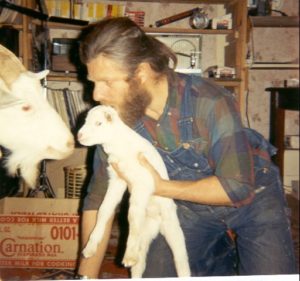
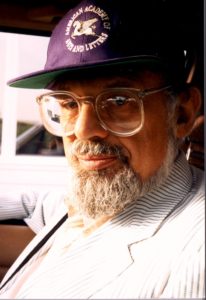
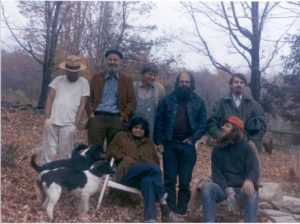
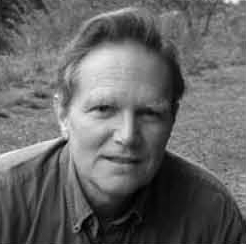
Podcast: Play in new window | Download
David Wilk interviews Steve Clay of Granary Books
July 26, 2017 by David
Filed under Publishing History, PublishingTalks
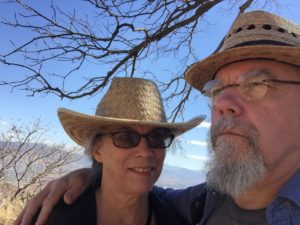 Publishing Talks began as a series of conversations with book industry professionals and others involved in media and technology about the future of publishing, books, and culture. As we continue to experience disruption and change in all media businesses, I’ve been talking with some of the people involved in our industry about how publishing might evolve as our culture is affected by technology and the larger context of civilization and economics.
Publishing Talks began as a series of conversations with book industry professionals and others involved in media and technology about the future of publishing, books, and culture. As we continue to experience disruption and change in all media businesses, I’ve been talking with some of the people involved in our industry about how publishing might evolve as our culture is affected by technology and the larger context of civilization and economics.
I’ve now expanded the series to include conversations that go beyond the future of publishing. I’ve talked with editors and publishers who have been innovators and leaders in independent publishing in the past and into the present, and will continue to explore the ebb and flow of writing, books, and publishing in all sorts of forms and formats, as change continues to be the one constant we can count on.
For the past several years, I’ve been talking to editors and publishers of independent presses about their work, including a number of important literary publishers.
Steve Clay is an old friend, who has been involved with poetry, art and publishing for about the last forty years or so. Steve is the publisher of Granary Books, through which he has done some extraordinary work with an incredible range of poets, artists and crafts people. He has been the instigator of literally hundreds of important standout works of art.
He calls himself an editor, curator, and archivist specializing in the American art and literature of the 1960s,’70s, and ’80s. Steve is also the author, with Rodney Phillips, of A Secret Location on the Lower East Side: Adventures in Writing 1960-1980 (1998) and editor, with Jerome Rothenberg, of A Book of the Book: Some Works & Projections about the Book & Writing. He lives in New York City.
But this outline of his work barely scratches the surface of Steve’s work. In our conversation, I tried to give him the opportunity to talk broadly about the scope of his creative work. He is truly an exemplar of the powerful nexus of writing, editing, and publishing, the “making public” work so critical to art and those who make and experience it. His work is a gift I urge you to spend some time to discover and explore on your own.
A good start is to visit the Granary Books website. Then go to the absolutely essential From a Secret Location: Poetry, Little Mags, Small Presses, and transient documents from the mimeo era and beyond.
There is another useful interview with Steve conducted by the brilliant poet Bill Corbett for the Paris Review here.
When Columbia University, which purchased the Granary Books archive, opened their first exhibit from the Granary archives in 2015, Mark Dimunation, chief of the Rare Book and Special Collections Division of the Library of Congress said about Steve: “Beginning in 1985 he has concocted a mix of poets, artists, printers and craftspeople whose work defines an era and fundamentally shapes our understanding of the artists’ book.”
Enjoy!
Pre-Face image from A Secret Location on the Lower East Side: Adventures in Writing, 1960–1980 (The New York Public Library and Granary Books, 1998), based on Bernadette Mayer, Studying Hunger (New York and Bolinas, CA: Adventures in Poetry and Big Sky, 1975). Cover photograph of the author by Ed Bowes.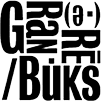
Podcast: Play in new window | Download
David Wilk interviews poet and publisher Bill Mohr
March 24, 2017 by David
Filed under Publishing History, PublishingTalks
 Publishing Talks began as a series of conversations with book industry professionals and others involved in media and technology about the future of publishing, books, and culture. As we continue to experience disruption and change in all media businesses, I’ve been talking with some of the people involved in our industry about how publishing might evolve as our culture is affected by technology and the larger context of civilization and economics.
Publishing Talks began as a series of conversations with book industry professionals and others involved in media and technology about the future of publishing, books, and culture. As we continue to experience disruption and change in all media businesses, I’ve been talking with some of the people involved in our industry about how publishing might evolve as our culture is affected by technology and the larger context of civilization and economics.
I’ve now expanded the series to include conversations that go beyond the future of publishing. I’ve talked with editors and publishers who have been innovators and leaders in independent publishing in the past and into the present, and will continue to explore the ebb and flow of writing, books, and publishing in all sorts of forms and formats, as change continues to be the one constant we can count on.
For the past several years, I’ve been talking to editors and publishers of independent presses about their work, including a number of important literary publishers.
Many years ago, I was introduced to the amazing poetry and writing scene in the Los Angeles area, centered in Venice Beach with the Beyond Baroque Literary Center (which was founded by poet George Drury Smith in 1968) through an old family friend, Alexandra Garrett. Surprisingly to many, Los Angeles has an amazing literary history – there’s much more there than just tinseltown. And of course Charles Bukowski and John Fante lived and worked there, John Martin’s Black Sparrow Press was born in LA, and there have been and now are thriving poetry scenes in various locales throughout the urb over the years. Doug Messerli’s Sun & Moon Press is another notable LA publisher we’ve spoken with.
There were several terrific bookstores in LA in those years, and quite a few great literary magazines and small presses over the years. One of the central individuals in the LA poetry movement of the seventies, eighties and nineties is Bill Mohr, whose magazine and press, Momentum, was a focal point for many writers in and around Los Angeles. Bill and I were friendly in those years but since lost touch, so it was a pleasure to get a chance to talk to him about Momentum for this series of interviews about the independent presses and magazines of the last half century.
Bill was born in Norfolk, Virginia, and grew up there, then moved to Los Angeles to do some acting with various small theater companies, including the Burbage Theater Ensemble. He published and edited Momentum magazine for five years, and then founded Momentum Press in the early 1980s. Between 1975 and 1988, Momentum published about 25 books including Leland Hickman’s Great Slave Lake Suite, which was one of five finalists for the Los Angeles Times book prize in 1980.
Bill also edited two important LA-focused anthologies, The Streets Inside (1978) and Poetry Loves Poetry (1985). During much of this time Bill worked as a blueprint machine operator and a typesetter, and later went to graduate school to start a new career as a scholar and professor. Mohr has been a visiting scholar at the Getty Research Institute in Los Angeles, as well as an Andrew W. Mellon Fellow at the Huntington Library in San Marino, CA. A chapter from his work-in-progress on West Coast poetry during the Cold War was included in The Sons and Daughters of Los: Culture and Community in L.A. (Temple University Press). For over 25 years he has taught creative writing in medium and minimum security prisons in Chino and the University of California, San Diego, and Idyllwild Arts, in Idyllwild, CA.
Bill is now a professor in the Department of English at California State University, Long Beach. He has a Ph.D. in Literature from the University of California, San Diego, and has taught at CSU Long Beach since 2006. His poems, prose poems and creative prose have appeared in dozens of magazines in the past 40 years, including 5 AM, Antioch Review, Beyond Baroque, Blue Collar Review, Blue Mesa Review, Caliban (On-line), Miramar, ONTHEBUS, OR, Santa Monica Review, Skidrow Penthouse, Solo Nolo, Sonora Review, Spot, Upstreet, Wormwood Review, and ZYZZYVA. His volumes of poetry include Hidden Proofs (1982); Penetralia (1984); Bittersweet Kaleidoscope (2006); and a bilingual volume published in Mexico, Pruebas Ocultas (Bonobos Editores, 2015). A CD and cassette release of spoken word was produced by Harvey Robert Kubernik and released by New Alliance Records in 1993.
This conversation was great fun for me, and I hope will be an important addition to the oral history of independent publishing over the last decades.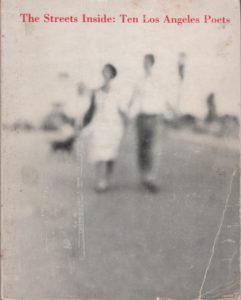
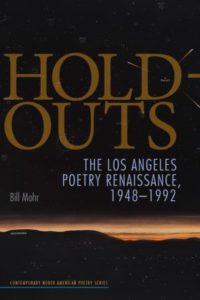
Podcast: Play in new window | Download
David Wilk interviews publisher and poet Merrill Leffler
December 18, 2016 by David
Filed under Publishing History, PublishingTalks
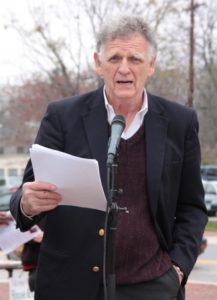 Publishing Talks began as a series of conversations with book industry professionals and others involved in media and technology about the future of publishing, books, and culture. I’ve talked with many people about how publishing is evolving as our culture is affected by technology within the larger context of changes in civilization and economics.
Publishing Talks began as a series of conversations with book industry professionals and others involved in media and technology about the future of publishing, books, and culture. I’ve talked with many people about how publishing is evolving as our culture is affected by technology within the larger context of changes in civilization and economics.
I’ve broadened the series to include conversations with editors and publishers who have been innovators and leaders in independent publishing both in the past and into the present. Through these talks, I hope to continue to explore the ebb and flow of writing, books, and publishing in all forms and formats, as change continues to affect our lives.
For the past several years, I’ve been talking to editors and publishers of independent presses about their work, including a number of important literary publishers. Most recently, I had the pleasure of speaking with Merrill Leffler, the co-founder and publisher of Dryad Press. Leffler and his publishing program have been fixtures in the Washington, D.C. area poetry and indie press scene, but are by no means local in interests or scope of work.
Merrill and his friend Neil Lehrman published the first issue of Dryad, a small poetry magazine, in 1968. Their journal, like many others in that era, began as a quarterly. After the first several issues, their publication dates became more variable, and in roughly 1975, Dryad evolved into Dryad Press — two issues of the magazine were sent to subscribers as books. In a further evolution over the years Dryad expanded from publishing poetry to include fiction and non-fiction as well.
With almost a half century of self-taught publishing behind him, Merrill Leffler, a writer and poet of some note himself, has much to talk about. In this conversation, we talked about the history of Dryad and its evolution as part of the modern era of independent publishing, as well as poetry, fiction, and much more.
Compared to many other writers and independent press publishers, Leffler has an unusual and singular background. He was trained as a physicist, worked for NASA’s rocket program and was the senior science writer at the University of Maryland Sea Grant Program, where he focused on research involving the biology of the Chesapeake Bay. In addition, for a number of years he taught English at the US Naval Academy in Annapolis.
Merrill Leffler has also published three collections of his poetry, most recently a collection called Mark the Music. There’s a great article about him (“Can a poet lose weight by snacking on poems?”) that mentions his role as the Poet Laureate of Takoma Park, Maryland here. And an excellent piece about Dryad and its history by Leffler at a DC area literary website called Splendid Wake.
Leffler is warm, generous, and was a pleasure for me to speak with. I hope you enjoy this interview as much as I did! 
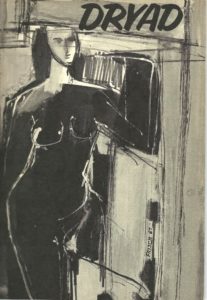
Podcast: Play in new window | Download
David Wilk interviews poet and publisher Bill Corbett
October 30, 2016 by David
Filed under Publishing History, PublishingTalks
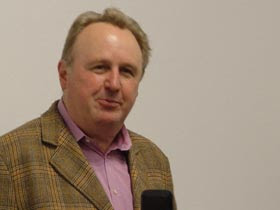 Publishing Talks began as a series of conversations with book industry professionals and others involved in media and technology about the future of publishing, books, and culture. As we continue to experience disruption and change in all media businesses, I’ve been talking with some of the people involved in our industry about how publishing might evolve as our culture is affected by technology and the larger context of civilization and economics.
Publishing Talks began as a series of conversations with book industry professionals and others involved in media and technology about the future of publishing, books, and culture. As we continue to experience disruption and change in all media businesses, I’ve been talking with some of the people involved in our industry about how publishing might evolve as our culture is affected by technology and the larger context of civilization and economics.
I’ve now expanded the series to include conversations that go beyond the future of publishing. I’ve talked with editors and publishers who have been innovators and leaders in independent publishing in the past and into the present, and will continue to explore the ebb and flow of writing, books, and publishing in all sorts of forms and formats, as change continues to be the one constant we can count on.
For the past several years, I’ve been talking to editors and publishers of independent presses about their work, including a number of important literary publishers. It’s a great pleasure for me to add Bill Corbett to this group. He’s been a key figure in the Boston literary scene for more than forty years, though he has now moved to Brooklyn.
Corbett’s house in the South End was an essential literary salon for local and many visiting artists, poets, and writers. Corbett has been active in what has been known as the “New York School” of poets, with a deep and abiding interest in the intersections of art and poetry. In a review of Corbett’s All Prose, Kevin Gallagher said “Corbett is ambassador to a strange land.”
Editing and publishing have also been central to Corbett’s work. He edited the literary journal Fire Exit with Fanny Howe and The Boston Eagle, with Lewis Warsh and Lee Harwood, wrote for the Boston Phoenix, and has been involved with literary magazines Ploughshares, Agni, and Grand Street. In 1999, Corbett founded Pressed Wafer, a small press publishing poetry, essays, and art writing. Corbett taught writing at MIT, and also has taught at Harvard and Emerson.
Patrick Pritchett summed up Corbett’s work rather well as follows:
For several decades now, Corbett has been one of our leading men of letters – the phrase itself has been rendered almost extinct in this age of ubiquitous bloggery and relentless peer-review – but I use it here to indicate a breadth of range and a fineness of attention that once upon a time was the norm, rather than the exception. As poet, essayist, memoirist, art critic, literary historian, publisher and tireless promoter of other writer’s work, Corbett is – yet ought not to be – sui generis. But even if the present time were more thickly populated by writers of comparable range, he would still be a force to be reckoned with, in a category of his own.
In this conversation, we talked about a wide range of topics, but it seems we may have barely scratched the surface of Corbett’s work in art and writing. I hope we will have a chance to talk again soon.
Links:
Pritchett essay about Bill Corbett on the blog Writing the Messianic
Pressed Wafer books “poetry fiction essays art memoir etc”
Podcast: Play in new window | Download
David Wilk Interviews Richard Grossinger of North Atlantic Books
May 22, 2016 by David
Filed under Publishing History, PublishingTalks, The Future
Publishing Talks began as a series of conversations with book industry professionals and others involved in media and technology about the future of publishing, books, and culture. As we continue to experience disruption and change in all media businesses, I’ve been talking with some of the people involved in our industry about how publishing might evolve as our culture is affected by technology and the larger context of civilization and economics.
I’ve now expanded the series to include conversations that go beyond the future of publishing. I’ve talked with editors and publishers who have been innovators and leaders in independent publishing in the past and into the present, and will continue to explore the ebb and flow of writing, books, and publishing in all sorts of forms and formats, as change continues to be the one constant we can count on.
It’s my hope that these conversations can help us understand the outlines of what is happening in publishing and writing, and how we might ourselves interact with and influence the future of publishing as it unfolds.
Over the past few years, I’ve talked to a number of independent publishers in an effort to document the extraordinary period of the past 40 years, which has been a sort of golden age of innovation and creativity, as publishing has literally been redefined. The number of great publishers established during this time in almost every category of publishing is pretty incredible.
One of the presses that has had a special impact on my own work is North Atlantic Books, founded by Richard Grossinger and Lindy Hough, as a transformation of their literary journal, Io, which they began together in 1965 as undergraduates at Amherst and Smith Colleges respectively. Richard and Lindy have been important mentors, friends, and colleagues to me for more than forty years, and their influence on my thinking about writing, ideas and books has been profound.
Since both Richard and Lindy are writers and editors with their own individual interests and styles, I thought it would make sense to interview each of them separately for this Publishing Talks series of conversations. Each of these conversations can stand independently or together. They tell two versions of an almost mythologic story, which I hope listeners will find as compelling as it was for me when I spoke to them.
Io is one of a number of influential literary magazines established in the sixties and seventies, publishing poets, film-makers and visual artists, many of whom were related to what has become known as the New American Poets, with influences ranging from Black Mountain College and the New York School to hermeticism and mystical spirituality. Io was singular in that it was most frequently a one-subject magazine, and this led eventually to the establishment of North Atlantic Books, which was incorporated in 1974 as a non-profit literary publisher in California.
Richard Grossinger was born November 3, 1944, and grew up in Manhattan. He graduated from Amherst College in June 1966 with a B.A. in English. That same month he married Lindy Hough, who attended Smith College in Northampton, Massachusetts.
He received a Ph.D. in anthropology from the University of Michigan for an ethnography incorporating economic and ecological studies of fishing communities in Eastern Maine and subsequently taught anthropology and other subjects at the University of Maine and Goddard College.
Io published 23 issues through 1976 before merging with North Atlantic and converting its publications to anthologies thereafter. Richard and Lindy served as the co-publishers of North Atlantic Books from 1974 onward, and Grossinger now functions mainly as acquisitions editor, while the press is run by its staff and board of directors.
Grossinger is the author of many books including Planet Medicine, The Night Sky, Embryogenesis, New Moon, Migraine Auras, On the Integration of Nature, and The Bardo of Waking Life.
This is the “official” description of North Atlantic Books, taken from its website:
North Atlantic Books is a nonprofit publisher committed to an eclectic exploration of the relationships between mind, body, spirit, and nature. Founded in 1974 by Richard Grossinger and Lindy Hough, NAB aims to nurture a holistic view of the arts, sciences, humanities, and healing. Over the decades, it has been at the forefront of publishing a diverse range of books in alternative medicine, ecology, and spirituality. NAB is the publishing program of the Society for the Study of Native Arts and Sciences, a 501(c)(3) nonprofit educational organization that promotes cross-cultural perspectives linking scientific, social, and artistic fields. With more than one thousand books in print, NAB has operated from Berkeley, California, since 1977.
My conversation with Richard Grossinger was recorded in December, 2016. This interview runs 52 minutes.
More about Richard Grossinger here.
Richard’s history of North Atlantic Books is on his website here. Companion interview with co-editor and co-publisher Lindy Hough is here.
Podcast: Play in new window | Download
David Wilk interviews Lindy Hough of North Atlantic Books and Io Magazine
May 9, 2016 by David
Filed under Ebooks and Digital Publishing, Publishing History, PublishingTalks, The Future
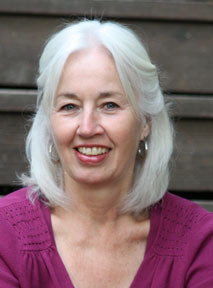 Publishing Talks began as a series of conversations with book industry professionals and others involved in media and technology about the future of publishing, books, and culture. As we continue to experience disruption and change in all media businesses, I’ve been talking with some of the people involved in our industry about how publishing might evolve as our culture is affected by technology and the larger context of civilization and economics.
Publishing Talks began as a series of conversations with book industry professionals and others involved in media and technology about the future of publishing, books, and culture. As we continue to experience disruption and change in all media businesses, I’ve been talking with some of the people involved in our industry about how publishing might evolve as our culture is affected by technology and the larger context of civilization and economics.
I’ve now expanded the series to include conversations that go beyond the future of publishing. I’ve talked with editors and publishers who have been innovators and leaders in independent publishing in the past and into the present, and will continue to explore the ebb and flow of writing, books, and publishing in all sorts of forms and formats, as change continues to be the one constant we can count on.
It’s my hope that these conversations can help us understand the outlines of what is happening in publishing and writing, and how we might ourselves interact with and influence the future of publishing as it unfolds.
Over the past few years, I’ve talked to several independent publishers in an effort to document the extraordinary period of the past 40 years, which has been a kind of golden age of innovation and creativity as publishing has literally been redefined. The list of great publishers established during this time in almost every category of publishing is amazing.
One of those presses that has had a special impact on my own work is North Atlantic Books, founded by Richard Grossinger and Lindy Hough as an outgrowth of their literary journal called Io, which they began together in 1965 when they were undergraduates at Amherst and Smith Colleges respectively. Richard and Lindy have been mentors, friends, and colleagues of mine for more than forty years, and their influence on my thinking about writing, ideas and books has been profound.
Since both Richard and Lindy are writers and editors with their own individual interests and styles, I thought it would make sense to interview each of them separately for this series of conversations. These two conversations can stand independently or together. They tell two versions of an amazing and almost mythologic story, which I hope listeners will find as compelling as it was for me when I spoke to them.
Io Magazine traveled with Lindy and Richard, moving to Michigan, Maine, Vermont and eventually California. Io is one of a number of influential literary magazines established in the sixties and seventies, publishing poets, film-makers and visual artists, many of whom were related to what has become known as the New American Poets, with influences ranging from Black Mountain College and the New York School to hermeticism and mystical spirituality. Io was singular in that it was most frequently a one-subject magazine, and this led eventually to the establishment of North Atlantic Books, which was incorporated in 1974 as a non-profit literary publisher in California.
North Atlantic Books has become one of the most successful and influential independent presses in America with a strong focus on spirituality and alternative health, while continuing its commitment to literary publishing.
Lindy graduated from Smith College and received an MFA in Creative Writing at Goddard College. She is the author of seven books of poetry, non-fiction, and fiction (including one book I published in 1978, the excellent Outlands & Inlands). She has taught literature and writing in Michigan, Maine, Vermont and California, and is currently finishing a novel.
This is the “official” description of North Atlantic Books, taken from its website:
North Atlantic Books is a nonprofit publisher committed to an eclectic exploration of the relationships between mind, body, spirit, and nature. Founded in 1974 by Richard Grossinger and Lindy Hough, NAB aims to nurture a holistic view of the arts, sciences, humanities, and healing. Over the decades, it has been at the forefront of publishing a diverse range of books in alternative medicine, ecology, and spirituality. NAB is the publishing program of the Society for the Study of Native Arts and Sciences, a 501(c)(3) nonprofit educational organization that promotes cross-cultural perspectives linking scientific, social, and artistic fields. With more than one thousand books in print, NAB has operated from Berkeley, California, since 1977.
Richard and Lindy are now retired from full time work with the press they founded, and each is now actively writing and editing books.
Our conversation was recorded in December, 2016. (55 minutes runtime)
Podcast: Play in new window | Download
David Wilk Talks with Wendy Burk of the University of Arizona Poetry Center
March 22, 2016 by David
Filed under Publishing History, PublishingTalks
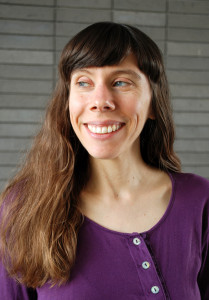 Publishing Talks began as a series of conversations with book industry professionals and others involved in media and technology about the future of publishing, books, and culture. As we continue to experience disruption and change in all media businesses, I’ve been talking with some of the people involved in our industry about how publishing might evolve as our culture is affected by technology and the larger context of civilization and economics.
Publishing Talks began as a series of conversations with book industry professionals and others involved in media and technology about the future of publishing, books, and culture. As we continue to experience disruption and change in all media businesses, I’ve been talking with some of the people involved in our industry about how publishing might evolve as our culture is affected by technology and the larger context of civilization and economics.
I’ve now expanded the series to include conversations that go beyond the future of publishing. I’ve talked with editors and publishers who have been innovators and leaders in independent publishing in the past and into the present, and will continue to explore the ebb and flow of writing, books, and publishing in all sorts of forms and formats, as change continues to be the one constant we can count on.
It’s my hope that these conversations can help us understand the outlines of what is happening in publishing and writing, and how we might ourselves interact with and influence the future of publishing as it unfolds.
I first visited the University of Arizona Poetry Center more than 35 years ago, and am happy to have had the opportunity to visit this great place again a few weeks ago. The Poetry Center has thrived and grown over the years, and is now housed in a beautifully designed modern building on the campus of the university, with a spectacular poetry library, rooms for teaching, readings, and even an apartment for visiting poets. Tucson and the university are lucky to have this fantastic resource in their community.
Founded in 1960 by poet and Walgreen heiress Ruth Stephan, with the goal of connecting people to poetry “without intermediaries,” the Poetry Center has grown from a somewhat humble beginning to become an exceptionally vibrant organization, bringing poets from all over the world to the beautiful Tucson environment.
Stanley Kunitz was the first poet to read there in 1962, and since then hundreds of poets have come to Tucson to read their work and interact with the community. The Poetry Center recorded most of their readings, and having spent considerable time and energy to digitize its collection, these readings are now available online in the Voca program, a mind boggling and wonderful resource for anyone interested in the range of modern poetry.
Founder Ruth Stephan’s mission statement from 1960 is still the guiding force behind everything the Poetry Center does: “Poetry is the food of the spirit, and spirit is the instigator and flow of all revolutions.” The Poetry Center is a living archive, a place where the spirit of poetry serves its community.
The Poetry Center sponsors numerous University and community programs, including readings and lectures, classes and workshops, discussion groups, symposia, writing residencies, poets-in-the-schools, poets-in-the-prisons, contests, exhibitions, and online resources, including standards-based poetry curricula, most of which is open to the public.
In October 2016, the UA Poetry Center will feature eight world-class poets as they address Climate Change & Poetry in a series of investigative readings to address this question: what role does poetry have in envisioning, articulating, or challenging our ecological present? What role does poetry have in anticipating, shaping–or even creating–our future?
The Poetry Center has an exceptional staff, many of whom are poets and writers themselves. When I visited there, I had the great pleasure of talking to Wendy Burk, the librarian of the Poetry Center, and to look around the building. I spent a good deal of time browsing the amazing collection of books, broadsides and photographs in the library too, and since then, I have spent many enjoyable hours listening to some of the great poets included in the Voca archive.
Wendy is the author of Tree Talks: Southern Arizona (Delete Press) and the translator of Tedi López Mills’s Against the Current (Phoneme Media), both forthcoming in 2016. She is the recipient of a 2013 National Endowment for the Arts Translation Projects Fellowship and a 2015 Artist Research and Development Grant from the Arizona Commission on the Arts. We talked together in her office at the UA Poetry Center.
Photos courtesy of The University of Arizona Poetry Center. Copyright Arizona Board of Regents
Robert Creeley, 1963, by LaVerne Harrell Clark
Lucille Clifton, 1975, by LaVerne Harrell Clark
Francine J. Harris and Tarfia Faizullah, 2015, by Cybele Knowles
Wendy Burk, 2015, by Cybele Knowles
Podcast: Play in new window | Download
David Wilk talks with James Sherry of Segue Foundation
February 22, 2016 by David
Filed under Publishing History, PublishingTalks
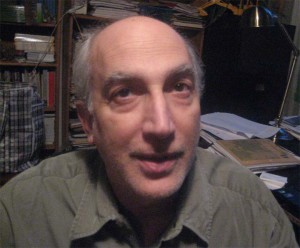 Publishing Talks began as a series of conversations with book industry professionals and others involved in media and technology about the future of publishing, books, and culture. As we continue to experience disruption and change in all media businesses, I’ve been talking with some of the people involved in our industry about how publishing might evolve as our culture is affected by technology and the larger context of civilization and economics.
Publishing Talks began as a series of conversations with book industry professionals and others involved in media and technology about the future of publishing, books, and culture. As we continue to experience disruption and change in all media businesses, I’ve been talking with some of the people involved in our industry about how publishing might evolve as our culture is affected by technology and the larger context of civilization and economics.
I’ve now expanded the series to include conversations that go beyond the future of publishing. I’ve talked with editors and publishers who have been innovators and leaders in independent publishing in the past and into the present, and will continue to explore the ebb and flow of writing, books, and publishing in all sorts of forms and formats, as change continues to be the one constant we can count on.
It’s my hope that these conversations can help us understand the outlines of what is happening in publishing and writing, and how we might ourselves interact with and influence the future of publishing as it unfolds.
The latest in this series of interviews with important independent publishers and editors is my talk with yet another old friend, James Sherry, founder of both Roof Books and the Segue Foundation, in New York City. I have followed and admired his writing and publishing for more than three decades now.
Sherry is the author of 14 books of poetry and prose, most recently Oops! Environmental Poetics (2014). He is the publisher of Roof Books, a press he founded in 1979, and the Segue Foundation, a nonprofit chartered in 1977. He lives in New York City.
With Roof Books and Segue, James has been a significant force in the promotion of experimental and innovative writing, both as a publisher, with more than 150 titles now in print, and as a venue for live events and poetry readings. At one point, Segue was the distributor for some of the most significant literary journals and small presses, including, notably, L=A=N=G=U=A=G=E, edited by Charles Bernstein and Bruce Andrews.
For this interview, I had the opportunity to speak with James Sherry in New York City, where he and Segue are going strong – the Segue calendar of events demonstrates some of the best of contemporary innovative writing, and Roof Books also continues to produce significant publications that anyone interested in modern poetry should be following.
Podcast: Play in new window | Download

